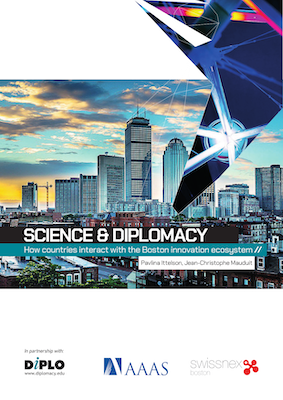Note: This article is a part of the publication ‘Science diplomacy capacity development: Reflections on Diplo’s 2021 course and the road ahead’
Economics is a social science which concerns how an individual or a group makes decisions and improvements. I work in an economic research institute, and I address internet governance, compliance, and human rights-related issues in my job. The fundamental dimension of those issues is how people or governments make decisions and govern the internet and communication.
Disinformation and rumors are critical issues in internet governance and related areas. Those issues also relate to fair competition in the market. My job concerns how to educate and encourage people to have awareness and discern which evidence can be trusted, and to understand where and how to find accountable evidence from a trustworthy organization via the internet. I also help people and organisations in the private sector to stop disinformation by building a healthy and competitive market.
In the Science Diplomacy course, attendees discussed science literacy. Science literacy should be built with evidence-based concepts. Without science literacy, people may not know how and where to find the evidence to support information. For example, many people like to eat supplement food and believe in folklore therapies or herbal medicine.
They don’t believe doctors with medical training, but they trust messages in their SMS apps. Some people die or get diseases because they would rather eat unknown herbal prescriptions and refuse to accept medical help from doctors. We can also talk about digital and media literacy capacity building for general internet users. We should encourage science literacy so that people will know how to identify disinformation on the internet.
The internet can spread rumors and disinformation quickly. Because of a lack of science literacy, people believe in misleading information easily. People may take some supplement foods on the basis of the brand and marketing by pharmaceutical companies. Consumers don’t know how to assess advertisements and marketing videos. They may listen to a friend or relatives and take too many pills in their daily life. They may search for a document to support their perspective without assessing the evidence.
The internet governance forum is similar to the diplomacy area. When I attended the meeting, I listened to people present their theories. Their statements were full of passion but they need more evidence to support their argument. As in statistics, we need to understand whether the sample is representative. Also, we need evidence to support the statement, not only information from your friends or some other untrustworthy internet media. It would help if you had a trustworthy diplomatic strategy in negotiation.
I read the G7 meeting report in the United Kingdom in 2021. They believed data localization would be a barrier to free data flow, but they need to collect evidence to prove that. They will discuss building a framework for cross-data transmission to help to grow the data economy. I had used endogenous growth theory to explain that data interoperability is essential to the internet and the digital economy and may bring a positive network externality to the prosperity of the internet economy. The experience taught me a correct and influential theory. I think that this is a ‘science for diplomacy’ issue in internet governance. So, the concepts discussed in the Science Diplomacy courses are already in real life.
The Science Diplomacy course proves how important it is to know the concept, to have trustworthy information resources, and to be careful to make evidence-based statements.








